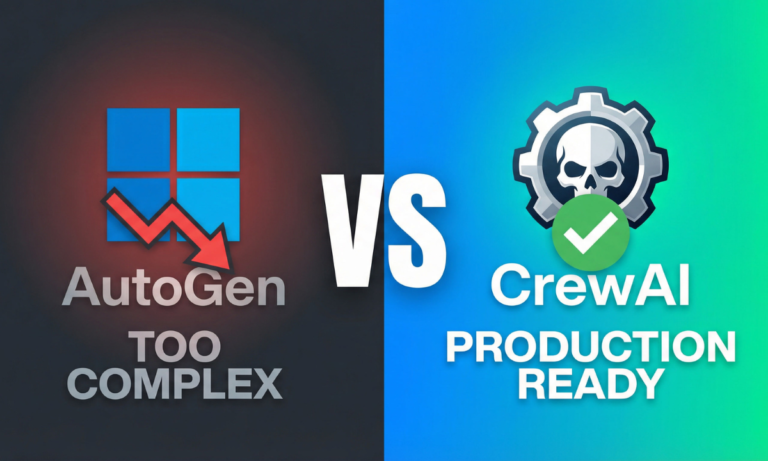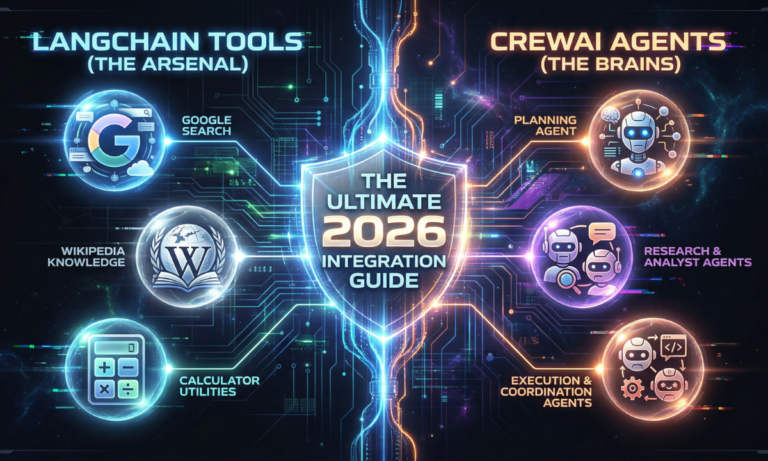
Remote Work Burnout: How Developers Are Coping in the AI Era
Table of Contents
The Dream That Became a Marathon
When I first started working remotely, it felt like freedom. No commute. No awkward small talk in the office. I could code in my pajamas with coffee in hand, the hum of my laptop as my only companion. For a while, it worked. But soon, what felt like freedom began to stretch into something darker—a never-ending marathon where work seeped into every corner of my life.
And I wasn’t alone.
Need Fast Hosting? I Use Hostinger Business
This site runs on the Business Hosting Plan. It handles high traffic, includes NVMe storage, and makes my pages load instantly.
Get Up to 75% Off Hostinger →⚡ 30-Day Money-Back Guarantee
Hyun Jin Lee, a young IT worker in Seoul, put it perfectly when interviewed by The Guardian:
“I regularly work from 9:30 am to 10 pm or later… Emails, meetings, hundreds of messages—my brain never gets rest.”
Reading that quote hit me hard because it mirrored my own experience. Days where I’d log off at 11 pm, my head buzzing with unfinished tasks, Slack notifications, and an endless queue of Jira tickets.
This isn’t just “working from home.” For many developers, it’s living at work.
Burnout Isn’t Just Common—It’s Everywhere
The numbers are staggering. A Medium article by Sraavan Chevireddy revealed that 65% of engineers report burnout, even though they have AI tools that supposedly make their work easier. Another survey found that 83% of developers experience burnout at some point in their careers.
And if you’ve spent any time on Reddit, you’ll see the unfiltered reality. One dev posted:
“Severe mental and physical fatigue… can barely leave my bed… dread having to wake up.”
I remember scrolling through that thread late at night, nodding along, thinking: This is exactly how I feel, but I thought I was just being weak.
It turns out burnout isn’t a rare condition. It’s a shared reality.
The AI Paradox: Friend or Foe?
AI tools like GitHub Copilot and ChatGPT have been game-changers. I can ship a feature faster, prototype quicker, and sometimes even cut down the “blank screen” anxiety of starting from scratch. Atlassian’s 2025 Developer Experience report says developers are saving over 10 hours per week thanks to AI.
That sounds amazing, right? But here’s the catch: the same report notes that devs are still losing six hours weekly to organizational inefficiencies—bad communication, unclear direction, and constant context-switching.
In other words, AI helps me type faster, but it doesn’t stop my manager from scheduling three back-to-back “quick syncs” that eat my entire morning.
One Redditor’s story made me laugh out loud in frustration:
“My CEO feeds our GitHub code to ChatGPT and acts like it’s the ground truth. Only ~10% of suggestions are actually valid.”
That’s the paradox of AI. It’s supposed to reduce stress, but sometimes it just shifts it—because now we’re battling with questionable outputs, security concerns, and leaders who treat AI like a silver bullet.
What Burnout Feels Like
If you’ve never experienced developer burnout, let me paint you a picture.
- You open your laptop at 9 am, and it feels like your brain is already at 20% battery.
- You stare at a single bug for hours because you just can’t focus.
- Lunch? You forget until it’s 3 pm.
- At 11 pm, you’re still checking Slack because your teammates in another time zone just came online.
And the worst part? You start losing the joy of building. The thing that once gave you energy—creating something out of nothing—now drains you.
One Delhi-based engineer shared that despite making Rs 30 LPA (a dream salary for many), he couldn’t handle the toxic work culture and relentless hours. That hit home. Because burnout doesn’t care about your paycheck—it eats into your mental and physical health all the same.
Useful Links
- The Era of Small Language Models (SLMs): Why 2026 Belongs to Edge AI
- Microsoft AutoGen vs. CrewAI: I Ran a “Code Battle” to See Who Wins in 2026
- How to Build AI Agents with LangChain and CrewAI (The Complete 2026 Guide)
- Beyond the Chatbot: Why 2026 is the Year of Agentic AI
- Why Developers Are Moving from ChatGPT to Local LLMs (2025)
- LangChain vs. LlamaIndex (2026): Which AI Framework Should You Choose?
So How Are Developers Coping?
This is where the stories get more hopeful. Through research, conversations, and even my own trial and error, I’ve seen patterns in how devs are clawing their way back from burnout.
1. Setting Boundaries (For Real This Time)
We’ve all heard it before—“set boundaries.” But what does that look like in practice? For some, it means uninstalling Slack from their phone. For others, it’s blocking out “no-meeting afternoons.”
A Twilio study showed that 47% of workers crave uninterrupted focus time. Honestly, I get more done in a single two-hour distraction-free block than I do in an entire day of context-switching.
2. Experimenting with Four-Day Workweeks
This one excites me. RocketAir’s CEO shared that their 4-day week works because AI tools pick up the slack (no pun intended). ChatGPT drafts proposals, Notion automates workflows, and humans get an extra day to breathe. Imagine that—AI not as a stressor, but as a way to buy back time.
3. Listening to the Body Clock
I read a Medium post by a developer in Dhaka who aligned his work with his natural circadian rhythm—coding during daylight, logging off before sunset. He said it reduced anxiety and boosted focus. I tried it myself, and while I’m not a morning person, shifting heavy work to early hours made evenings actually feel like… evenings.
4. Creative Stress Relief
Ella Brown’s Burned Out Techie blog had some quirky ideas: digital detox days, fitness challenges, even learning non-tech hobbies like painting. It reminded me that I don’t have to “optimize” every minute. Sometimes joy comes from activities with no measurable productivity.
My Own Burnout Hacks (That Actually Work)
Let me add my personal crispa here—what’s been working for me in this AI-driven remote chaos:
- Pomodoro with Walks: Instead of 25 minutes, I do 50 minutes of deep work, then take a 10-minute walk outside. That small dose of sunlight resets my brain.
- AI as a Drafting Tool, Not a Crutch: I let ChatGPT or Copilot draft skeletons of code or docs, but I still take ownership of the final version. That balance keeps me sharp.
- Weekly “Analog Day”: One weekend day is tech-free. No coding, no Slack, no LinkedIn doomscrolling. Just books, family, or nature. It feels like a system reboot.
Your Turn: Share Your Story
If you’ve read this far, you probably have your own story of burnout—or a hack that saved you from it. I’d love for you to share it.
➡️ Drop your coping strategies in the comments.
➡️ Screenshot your “work-life hacks” and tag #DevTechBurnout.
Because here’s the thing: burnout thrives in silence. But when we talk about it, when we share raw stories, it becomes less of a shame and more of a shared challenge we can face together.
Final Thoughts
Remote work in the AI era is complicated. It’s not the utopia we dreamed of, but it’s not all doom either. AI isn’t a villain—it’s a tool. Burnout isn’t weakness—it’s a warning sign. And boundaries aren’t luxuries—they’re survival strategies.
If you’re struggling, remember: you’re not lazy, you’re not broken—you’re human. And maybe that’s the most important reminder in an age where machines are writing code faster than we can.
📌 Useful References:
- Atlassian: AI paradox for developers
- Business Insider: 4-day workweek with AI
- TechRadar: Workers crave quiet
- Ella Brown’s Burned Out Techie
❓ Frequently Asked Questions (FAQs)
1. What are the main causes of developer burnout in remote work?
The biggest causes include blurred work-life boundaries, excessive meetings, constant context-switching, and unrealistic deadlines. Even with AI tools, many developers feel pressure to “always be available,” which worsens fatigue.
2. Does AI reduce or increase developer burnout?
Both. AI tools like GitHub Copilot or ChatGPT can save time by automating repetitive tasks, but they also create new challenges—like handling inaccurate outputs, managing security risks, and adapting to higher expectations from employers who assume AI should make you infinitely faster.
3. How can developers set healthy boundaries while working remotely?
Practical methods include scheduling “no-meeting” blocks, disabling Slack/email notifications after hours, creating a dedicated workspace at home, and communicating availability clearly with managers. Some developers also use time-blocking or Pomodoro techniques.
4. What are some real strategies developers are using to fight burnout?
Real-world strategies include taking tech-free “analog days,” practicing mindful walks between coding sessions, experimenting with four-day workweeks supported by AI, aligning work with personal circadian rhythms, and pursuing non-tech hobbies like art, music, or fitness.
5. Can burnout affect productivity long-term?
Yes. Burnout reduces focus, creativity, and problem-solving ability. Over time, it can lead to chronic fatigue, depression, and even career shifts. Many developers report losing their passion for coding entirely if burnout goes unaddressed—making early coping strategies crucial.

🚀 Let's Build Something Amazing Together
Hi, I'm Abdul Rehman Khan, founder of Dev Tech Insights & Dark Tech Insights. I specialize in turning ideas into fast, scalable, and modern web solutions. From startups to enterprises, I've helped teams launch products that grow.
- ⚡ Frontend Development (HTML, CSS, JavaScript)
- 📱 MVP Development (from idea to launch)
- 📱 Mobile & Web Apps (React, Next.js, Node.js)
- 📊 Streamlit Dashboards & AI Tools
- 🔍 SEO & Web Performance Optimization
- 🛠️ Custom WordPress & Plugin Development







